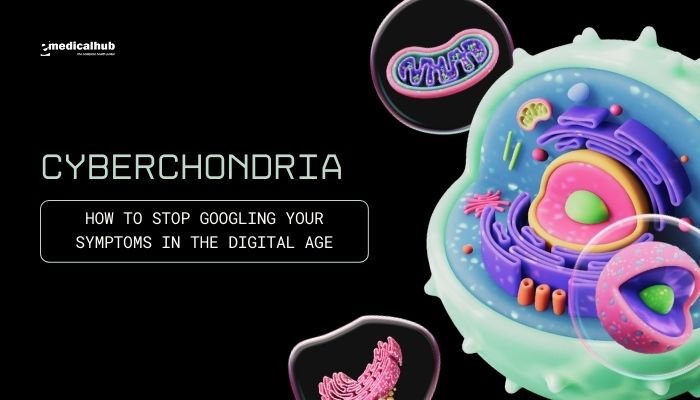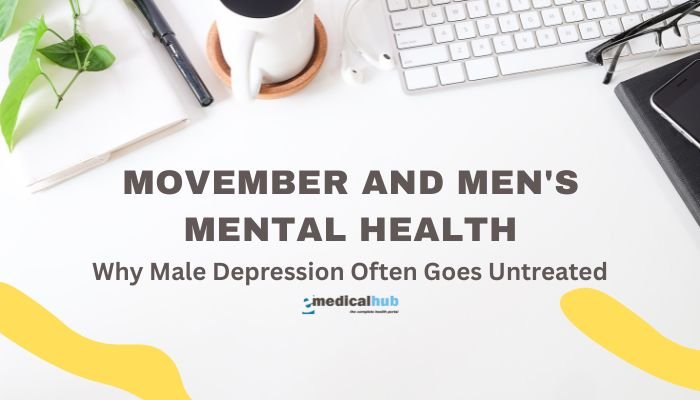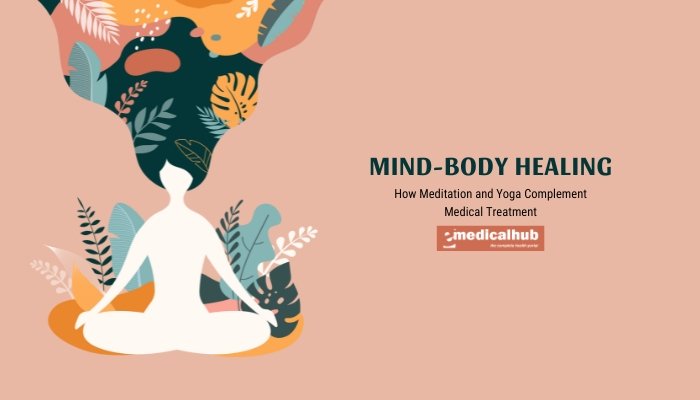Introduction
Many people turn to the internet for health advice and answers to medical questions. They type symptoms into search engines hoping to find insights or reassurance. While this might offer fast information, it can also cause confusion, anxiety, and fear. Searching for symptoms online sometimes leads to “cyberchondria,” a pattern of excessive worry or panic over uncertain health information.
Cyberchondria affects many individuals who start with mild symptoms and end up worrying about serious conditions based on random online articles or forums. The web contains both reliable and unreliable data. It is not always easy to know which sources to trust. Constant searching can worsen stress and amplify minor issues.
This article explores how cyberchondria develops, signs to watch for, and strategies to reduce harmful online health searches. Readers will learn practical tips for balancing legitimate medical research with healthy offline activities and professional guidance.
Understanding Cyberchondria
Definition
Cyberchondria is an anxiety-related behavior that involves repeatedly searching the internet for medical information, often leading to heightened worries about health. Minor symptoms can turn into major fears when someone reads alarming material or worst-case scenarios online.
How It Differs from Being Cautious
Some people check symptoms online to gather information before seeing a doctor. That by itself is not necessarily a problem. Cyberchondria becomes an issue when:
- There is an overwhelming urge to search every time a mild symptom appears.
- Searching extends for hours, switching from one site to another in a cycle of growing fear.
- The individual repeatedly doubts professional opinions and reassurance, seeking more internet confirmation.
- Obsessive searching interrupts daily tasks or personal relationships.
Contributing Factors
- Abundance of Mixed Information: The internet includes credible medical resources but also personal blogs or unverified statements. People can be drawn into confusing or extreme content.
- Low Tolerance for Uncertainty: Individuals who struggle with ambiguity may feel a need to find a definitive answer for every symptom.
- Health Anxiety History: Those with pre-existing health anxiety (formerly called hypochondria) or generalized anxiety disorders are more prone to cyberchondria.
- Past Negative Experiences: A scary health event or a family member’s illness can trigger more frequent searches.
Quote: “The internet offers quick answers about health, but not every answer is a reliable path to peace of mind.”
Why Googling Symptoms Can Be Harmful
Escalating Fear
Typing in vague symptoms—like “dizziness” or “stomach pain”—returns a wide range of possible diagnoses. Because serious conditions attract attention, search results or article titles may highlight worst-case possibilities. The more severe the diagnosis, the more it sticks in a person’s mind, fueling anxiety.
Information Overload
Search engines produce pages of results. People may browse multiple websites, each offering different causes, potential conditions, or urgent calls to seek immediate help. Conflicting details amplify uncertainty. Over time, the user’s mental stress grows.
Confirmation Bias
When anxious about health, individuals often focus on alarming findings that confirm their worst fears, overlooking benign explanations. This bias encourages further internet searches, reinforcing the cycle of worry.
Excessive Reassurance Seeking
Endless reading of health forums or question-and-answer sites can replace actual medical consultation. People seek reassurance from strangers online or gather multiple contradictory opinions, which may not resolve fears. This can cause confusion and dissatisfaction.
Potential Delay in Real Treatment
If someone relies too heavily on unverified online resources, they might avoid or delay seeing a doctor, believing they can self-diagnose or self-treat. This could lead to neglected serious conditions or misguided self-medication.
Recognizing Signs of Cyberchondria
Frequent Symptom Searches
One of the biggest red flags is the repeated urge to look up even the slightest twinge or ache, often multiple times a day. Despite negative test results or a doctor’s reassurance, the cycle continues.
Difficulty Stopping
A person may feel compelled to keep reading articles, thinking “just one more site” will give certainty. But it rarely does. The user ends up scrolling through pages for hours, well past the point of usefulness.
Anxiety or Panic After Reading
If new symptoms suddenly seem more severe or fear spikes right after an online session, it might be related to the unsettling information found. The emotional state deteriorates, causing more stress.
Immediate Jump to Worst-Case Scenarios
When a slight headache is immediately associated with a brain tumor—or any mild cough is linked to serious lung diseases—catastrophic thinking points to a possible cyberchondria pattern.
Repeated Need for Reassurance
Even after reading a reliable source or consulting a healthcare provider, the individual may still feel the need to verify. They might ask friends or relatives for more input and continue searching for different opinions online.
Mental and Emotional Impact
Increased Stress Hormones
Ongoing health anxiety raises stress hormone levels like cortisol, which can affect sleep, immune function, and overall mood.
Poor Sleep and Fatigue
Worrying thoughts can lead to insomnia. People who browse medical sites late into the night may have trouble winding down, causing fatigue that worsens anxiety the next day.
Strain on Relationships
Excessive anxiety about health can frustrate family or friends. Loved ones might feel helpless, or they might offer continual reassurance that does not solve the root issue. Conflicts or misunderstandings can emerge.
Depression or Hopelessness
If fear persists, an individual might grow discouraged, convinced they have a serious illness or that doctors are missing something. This negative mindset can shift into depressive feelings over time.
Setting Healthier Online Habits
Awareness of Credible Sources
Learning to evaluate the reliability of a website is a crucial step:
- Check if the site is maintained by recognized medical groups or government health agencies.
- Look for the author’s credentials or references.
- Avoid sensational headlines or websites that push unverified claims.
Limit Online Searches
Set strict boundaries on searching:
- Time Limits: Decide to research symptoms only once a day for a short time.
- One or Two Trusted Sources: Rely on official health websites, ignoring random forums or alarming blogs.
- Avoid Overuse: If possible, wait until you talk to a doctor before diving into extensive self-diagnosis.
Use Symptom Checkers Wisely
Some medical websites have symptom checkers. They can be helpful starting points but should not replace professional advice. Understand that these tools often list many possible causes, including very serious ones, to avoid missing any. They are not definitive diagnoses.
Set a “Search-Free” Area
Agree on certain times or places where health searches are off-limits. For instance, do not bring phones or tablets to bed. Reducing triggers in the evening can improve sleep and reduce late-night anxiety spirals.
Quote: “Taking small steps to control web searches helps break the cycle of endless worry and fosters a sense of calm.”
Practical Strategies to Overcome Cyberchondria
Cognitive Behavioral Approaches
Identifying Cognitive Distortions
Many with cyberchondria display catastrophic thinking or black-and-white views about health:
- Catastrophizing: “This strange pain must mean something severe.”
- Overgeneralization: “If one website mentions a rare disease, I probably have it.”
Recognize these thought patterns and challenge them.
Thought Records
Keeping a simple log of negative thoughts and evaluating their realism can help. For instance, ask:
- “What proof do I have that this mild symptom indicates a serious illness?”
- “Are there simpler explanations?”
- “Have I jumped to the worst-case scenario before, and was it correct?”
Mindfulness and Stress Management
Practices such as deep breathing, progressive muscle relaxation, or mindfulness meditation can ground the mind when anxiety spikes. They stop the urge to “panic search” for medical answers online.
Lifestyle Changes
- Regular Physical Activity: Exercise reduces stress hormones and can help stabilize mood.
- Healthy Sleep Habits: Turn off devices an hour before bed and keep a consistent bedtime.
- Balanced Diet and Hydration: Proper nutrients support mental resilience.
Seek Professional Help
If anxiety is overwhelming, counseling with a mental health professional or psychologist experienced in anxiety disorders can offer deeper coping tools. In some cases, a physician may prescribe short-term medication or suggest more specialized therapy.
Accountability Partners
Ask a friend or family member to check in. If you feel the urge to search symptoms constantly, reach out instead. Talking about concerns can ease the immediate need to consult random websites.
Limit Social Media Health Content
Social networks often spread sensationalized stories or anecdotal health advice. Reduce following pages that frequently post shocking medical headlines. Filter your news feed for calmer, balanced information.
Working with Healthcare Providers
Honest Communication
Tell your doctor if you frequently search for health information online. They can recommend trusted websites and correct any misconceptions. This openness also helps them understand your anxiety level.
Regular Checkups
Consistent visits for physical exams and routine tests can ease anxiety by providing professional oversight. If you have up-to-date lab results and assessments, you may feel less pressure to self-diagnose.
When to Seek Immediate Care
Some symptoms do warrant quick evaluation:
- Severe, persistent, or worsening pain
- Sudden high fever
- Difficulty breathing
- Heavy bleeding
- Fainting or confusion
Recognize these true emergency signs, but avoid mislabeling every mild discomfort as urgent.
Creating a Symptom Journal
If new symptoms appear, note them in a short daily log:
- Time of onset
- Possible triggers (food intake, stress, poor sleep)
- Intensity or duration
Share these observations with your doctor. This approach is more organized than searching online. It helps physicians see patterns and identify real conditions more accurately.
Balancing Technology and Well-Being
Digital Detox
A periodic break from devices can interrupt the habit of reflexively checking health sites. Set aside a day (or part of a day) each week to go offline.
Screen Time Limits
Smartphones have built-in timers or app-blocking tools. Schedule them to lock internet browsers or certain apps after a set usage time. This prevents mindless browsing that leads to anxiety spirals.
Productive Online Activities
Refocus on constructive content if you are online. Watch tutorials on relaxation exercises, read uplifting materials, or engage in hobbies unrelated to health. Replace harmful browsing with positive usage.
Supporting Others
If a friend or relative is also prone to health anxiety, form a small accountability group. Remind each other of healthy boundaries for internet searches. Provide calm, factual reassurance when needed.
Case Examples
Overcoming Excessive Heart Health Worries
Amir experienced occasional chest tightness after large meals. He repeatedly searched online, stumbling on heart attack risk factors, and grew convinced he had heart disease. His doctor found only acid reflux. Through therapy, Amir recognized how catastrophic thinking fueled his anxiety. He set a 15-minute limit on health searches and practiced breathing exercises when worried. Over weeks, his panic lessened and he learned to trust professional evaluations.
Breaking the Late-Night Googling Habit
Lauren had trouble sleeping because she would google every small rash or headache at 2 AM, winding up restless and scared. She placed her phone in another room before bed and started using a paper-based puzzle book to relax. Within a month, her nighttime health searches dropped, and she reported fewer anxious thoughts.
Tips for Long-Term Management
Maintain Awareness
Stay alert for old patterns of excessive searching. If you catch yourself going down a rabbit hole of medical articles, pause and apply coping strategies immediately.
Refresh Coping Skills
Review your strategies—thought records, mindfulness, or time limits—periodically. Adjust them to new life situations that might raise anxiety (such as job stress or family health events).
Celebrate Small Wins
Every time you resist the urge to do an unnecessary medical search or keep your daily usage within set bounds, acknowledge your progress. Small victories build confidence.
Keep a Balanced Perspective
Remember that mild symptoms often have simple explanations. The human body experiences occasional aches, itches, or changes. Not all must be labeled as serious.
Quote: “By focusing on reliable information, healthy habits, and support, we can break the cycle of cyberchondria and find reassurance in balanced care.”
Frequently Asked Questions (FAQs)
- Is researching symptoms online ever useful?
Yes, in moderation. Online material can offer background knowledge before appointments. The problem arises when it fuels anxiety and constant worry. - How do I know if I have cyberchondria?
Look for patterns of repeated symptom searches, persistent fear, ignoring medical reassurance, and difficulty stopping. If it disrupts daily life, consider speaking to a professional. - What if I find conflicting advice on the internet?
Always consult a trusted healthcare provider for clarity. Rely on official or highly recognized medical websites rather than random forums or unverified blogs. - Should I delete all health-related apps?
Not necessarily. If certain apps provide structured, factual information or help track legitimate conditions, they can be useful. Focus on those offering credible data without stoking fear. - When do I need professional mental health support?
If anxiety is severe, or you cannot break the pattern alone, seek counseling. Therapies like cognitive behavioral therapy can be very helpful in managing health-related anxiety.
Moving Forward: A Balanced Approach to Health
Cyberchondria is fueled by uncertainty, fear, and repetitive internet searches. Instead of finding calm, many spiral into deeper worry. Yet, knowledge can be empowering if guided by reliable sources and wise limits.
A balanced approach involves:
- Trusting medical professionals over random online opinions.
- Recognizing that not every ache or twinge signals a serious condition.
- Practicing stress-management techniques that reduce compulsive searching.
- Surrounding yourself with a supportive network of friends, family, and, if needed, therapists or counselors.
Over time, mindful internet use can help you stay informed without living in fear. By taking steps to end compulsive symptom Googling, you are likely to find more stable emotional health and a clearer understanding of genuine medical needs.
References
-
- Starcevic V, Berle D. Cyberchondria: Towards a better understanding of excessive health-related internet use. Expert Rev Neurother. 2019;19(7):539-541.
- McMullan RD, Berle D, Arnáez S, Starcevic V. The relationships between health anxiety, online health information seeking, and cyberchondria: Systematic review and meta-analysis. J Affect Disord. 2019;245:270-278.
- Baumgartner SE, Hartmann T. The role of health anxiety in online health information seeking. Cyberpsychol Behav Soc Netw. 2020;23(6):395-399.
- Tyrer P. Recent advances in the understanding and treatment of health anxiety. Curr Psychiatry Rep. 2018;20(7):49.
- Eichenberg C, Schott M, Decker O, Sindelar B. Use of web-based information to enhance coping with different types of stress: A cross-sectional study in Germany. BMC Public Health. 2021;21(1):1337.
- Muse K, McManus F, Leung C, Meghreblian B, Williams JMG. Cyberchondria: A new dimension of health anxiety? The overlap with specific anxiety disorders and impact on symptom severity, disability, and quality of life. Clin Psychol Psychother. 2021;28(4):989-998.
- Ganaie SA, Wani MA, Nisar S, Margoob MA. Health anxiety in the digital age: an emerging challenge. Arch Ment Health. 2021;22(2):229-235.
- Mathes BM, Norr AM, Allan NP, Albanese BJ, Schmidt NB. Cyberchondria: Overlap with health anxiety and unique relations with impairment, quality of life, and service utilization. Psychiatry Res. 2018;261:204-211.
- Agarwal S, Bryce C, Crowe R, McDermott D. Assessing the risk and benefits of searching for health information online. Health Technol (Berl). 2020;10(1):193-198.
- Newby JM, Hobbs MJ, Mahoney AEJ, Wong SK, Andrews G. Test of an unguided internet-delivered cognitive behavioural therapy intervention for mixed anxiety and depression. Internet Interv. 2018;14:110-120.
- Kelliher Rabon J, Slaboda JC, Khalid-Khan S, Anton BS. Understanding the effects of online health anxiety: relationships with anxiety severity, functional impairment, and quality of life. J Nerv Ment Dis. 2021;209(10):712-717.
- Doherty AM, Kelly BD. When patients keep Googling: health anxiety in the digital age. Clin Med (Lond). 2022;22(1):8-11.







